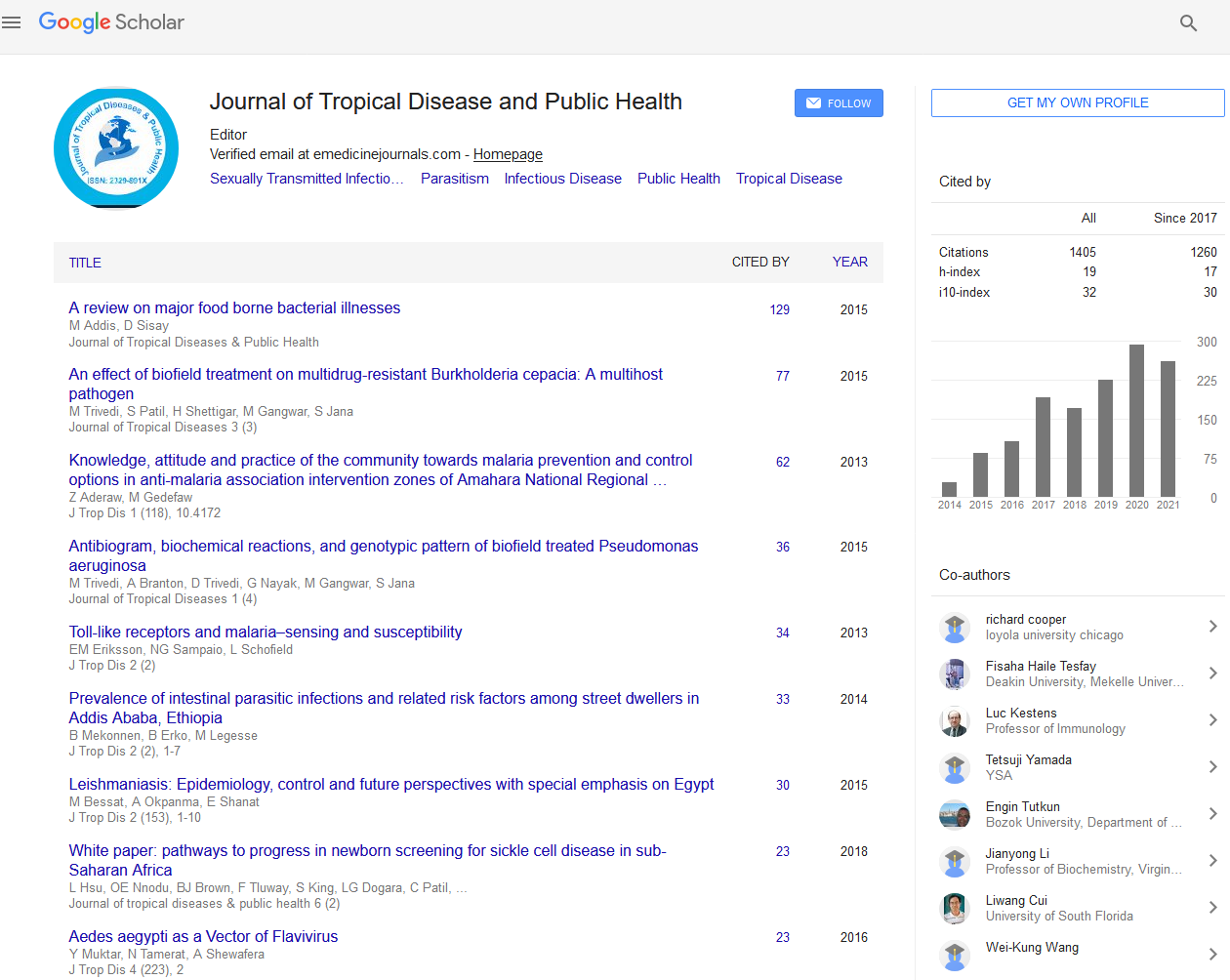Indexed In
- Open J Gate
- Academic Keys
- ResearchBible
- China National Knowledge Infrastructure (CNKI)
- Centre for Agriculture and Biosciences International (CABI)
- RefSeek
- Hamdard University
- EBSCO A-Z
- OCLC- WorldCat
- CABI full text
- Publons
- Geneva Foundation for Medical Education and Research
- Google Scholar
Useful Links
Share This Page
Journal Flyer

Open Access Journals
- Agri and Aquaculture
- Biochemistry
- Bioinformatics & Systems Biology
- Business & Management
- Chemistry
- Clinical Sciences
- Engineering
- Food & Nutrition
- General Science
- Genetics & Molecular Biology
- Immunology & Microbiology
- Medical Sciences
- Neuroscience & Psychology
- Nursing & Health Care
- Pharmaceutical Sciences
Abstract
Application of Soft Computing Techniques in The Diagnosis of Tropical Diseases: A Systematic Review
Samuel B. Oyong, Faith-Michael E. Uzoka*, Okure U. Obot, Etim Edem Ekong and Pius U. Ejodamen
The complex nature of tropical disease variants with confusable symptoms has led to prescription errors and consequentially, many deaths. Soft-computing techniques have been proposed to handle vagueness and imprecision in the diagnosis process. This paper presents a systematic review on the use of soft-computing techniques in the diagnosis of tropical diseases. The results show that Africa, Asia-Pacific and European countries have done more research in areas that focus on the use of soft computing techniques in the diagnosis of tropical diseases, followed by the Americas. Of the twelve (12) tropical diseases commonly researched, malaria, dengue fever, skin diseases, and typhoid fever top the list. The soft-computing classifiers were evenly distributed between single and hybrid paradigms. Most of the classification engines were based on fuzzy logic (15), neural network (5), support vector machine (4), and decision tree (4). Some of the systems were not deployed and most health organizations (including WHO) have not fully embraced the use of soft-computing systems on medical diagnosis. There are many changes taking place in medical diagnosis including; resistance to drugs, high cost of manufacturing hybridized drugs to fight disease resistance and unstructured data gathering that is not suitable for traditional soft computing classifiers. To this end, it is recommended that the WHO and its allies need to diversify their policy on disease control and eradication by including soft computing techniques, especially hybridization (ensemble) methods. This inclusion will reduce morbidity and mortality rates in affected regions.
Published Date: 2020-08-20; Received Date: 2020-07-27


